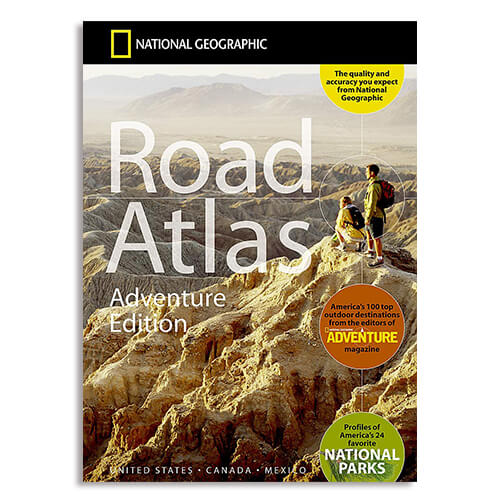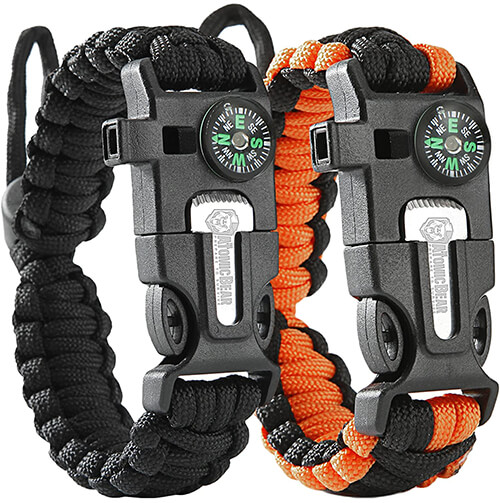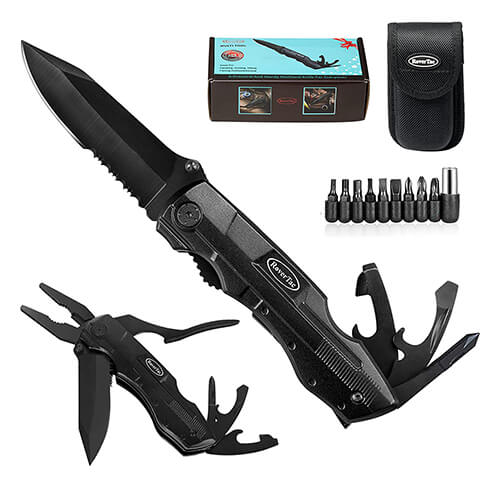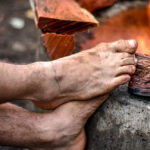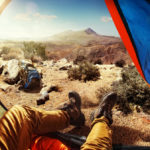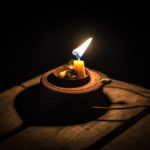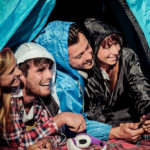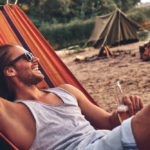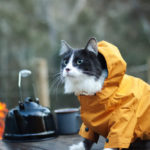Is becoming an increasingly popular activity. Some use camping to disrupt their busy connected lifestyles. Others seem to enjoy the serenity of nature and use it to rouse creativity. I go solo camping as a woman because I enjoy different challenges and especially when I feel that I’m becoming complacent with my life. It’s also the perfect opportunity for me to practice photography or test out some new camping gear.
The privacy and freedom that one feels is what makes solo camping attractive. But it’s important to respect and not underestimate the wilderness.
Solo Camping for Women will always pose more risks than being in a sizeable visible group. From my experience, when camping alone as a woman, what can go wrong, will go wrong.
Solo Camping for Women Is An Amazing Experience
This article will present the practical tips I’ve gained from years of solo camping. It will also reveal valuable advice from the many female campers that I’ve reached out to.
Whether you’re going on your first solo camping excursion or the thousandth solo camping trip, use this article as a guide. Expect to learn; how to prepare for a solo trip, what to pack, how to interact with the wild, safety, and how to have fun.
Hopefully, by the time you finish reading this article, your anxiety will be at ease. Don’t be shocked if you soon find yourself gearing up for your next adventure.
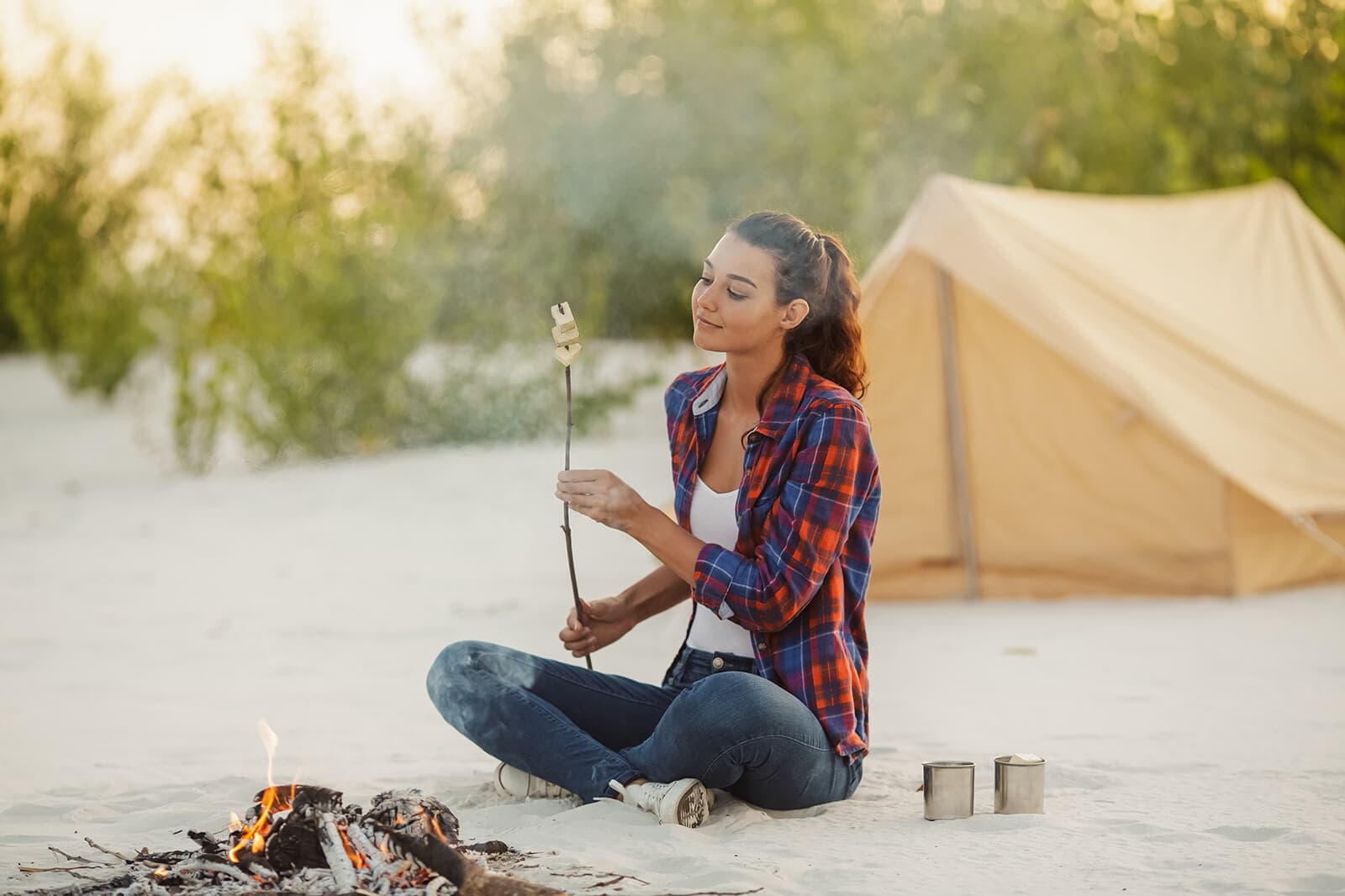
Preparing for your female solo camping trip.
As a rule of thumb, it is better to be over-prepared when camping solo. But not to the point where you don’t take action, or you get overwhelmed and decide that ‘it’s just too hard.’
You want to be prepared and equipped, mentally, and physically. But only to the point that you are calm in many situations that mother nature throws at you.
Camping alone, finding a location.
First, you need to decide where you will be going. If you’re aware of the area, then you may want to look at the details you haven’t studied before. Find yourself a map and write down in bullet points everything that sticks out or is of interest.
Take notes of landmarks, emergency points, and locations of nearby dwellings. If your planning on doing activities like hiking, fishing or swimming. Record the coordinates of where the action begins and where the activity may end.
Learn the surrounding terrain and get familiar with the map like you would with the back of your hand.
Contact the local park ranger if it’s your first excursion to that territory. Many Parks Authorities will be happy to provide you with topographic maps.
These maps have useful data and first-hand accounts and ground observations from explorers, collected over several years.
During this time, ask the Park Authorities on pertinent topics. Find out as much information as you can about the local fire and waste management restrictions in addition to good camping locations, firearm regulations, and emergency contact points.
Outdoor forums are a great source of solo camping ground reviews and first-hand accounts. Not only that, but forum contributors can provide a wealth of free camping recommendations.
Some topics I’ve had help with include; beginner’s advice on Solo Camping for Women, secret hiking trails, and tips on camping etiquette and survival.
Camping solo and good climates for camping.
Once you confirm the setting of where you’re going to be camping alone, you must set a date. Be mindful of the weather, climate, and seasonality during your intended stay. Will it be rainy, sunny, or cold?
It’s not a good idea to go solo camping in extreme weather, especially if you are a beginner. Having an idea of the weather conditions will help you decide on the type of clothing and equipment to take.
Tell friends and family about your solo camping plans.
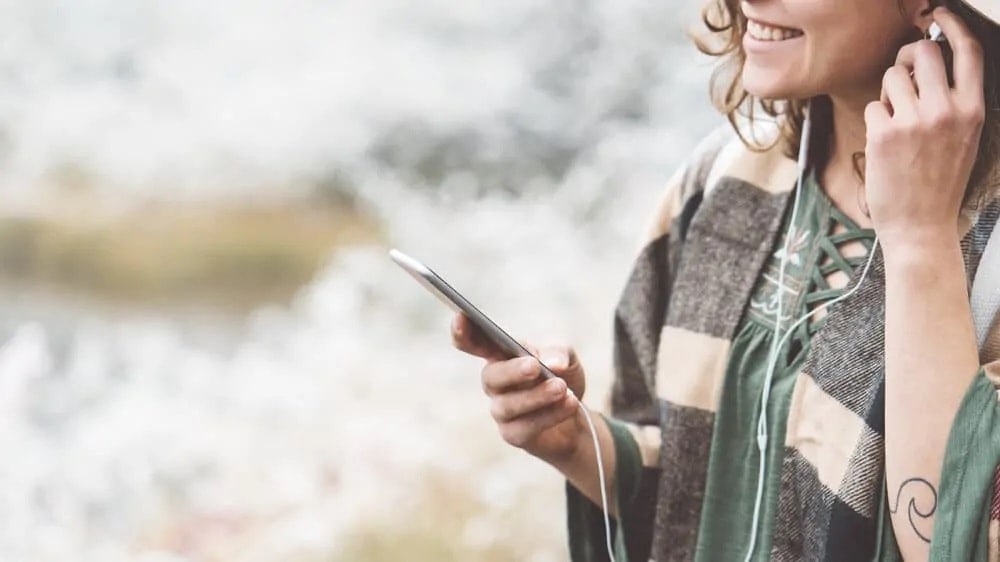
Family and friends are an excellent resource for getting intel on camping spot ideas. Best of all, their reviews and unbiased opinions are going to be in your best interest. Be sure to validate any good suggestions online.
But the importance of this step is to make your family aware of your intent to go camping alone. They shouldn’t be taken by surprise when you disappear off on your trip.
Make sure to give them plenty of notice. Provide all the relevant information to family members once you have decided on a time and place.
These details may include park ranger contacts, your registration details and a description of your vehicle.
A great precaution I follow is to ask a family member or friend to initiate a contact schedule when im camping alone. This ensures that someone else calls your cell every few days to see how your doing.
Using social media as a safety net.
Social media can be your friend when solo camping. It’s up to you whether or not you decide to give out your exact location to your friends. But, you can create awareness on social media by posting often.
Be active and consistent with posting. A sudden drop in your online activity when your camping alone may indicate to your audience the need to send for help.
Transportation to your solo camping location, choosing wisely.
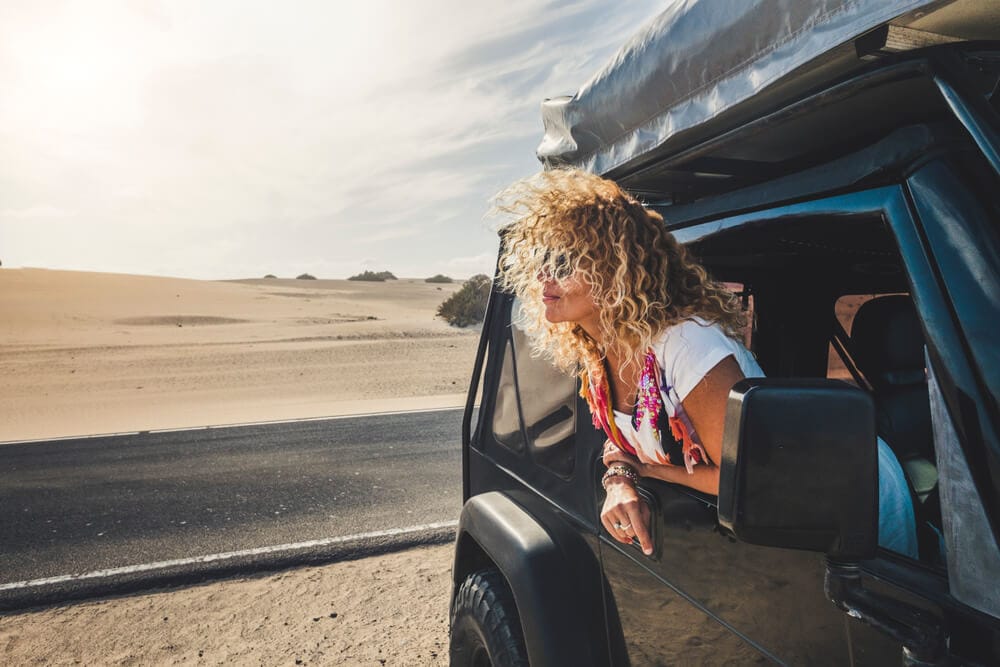
When camping solo, It’s best to nominate your mode of car camping transportation as early as possible. Having your method of transport locked in early will allow you to plan out certain aspects of your trip.
This includes, how much gear you can stow in the vehicle and what terrain you can explore when you get there.
My preference when getting to and from camp destinations is via an all-terrain special utility vehicle. An SUV provides plenty of space for my camping gear, it also doubles up as accommodation, that is if I can’t get my tent up before dusk.
Also, a four-wheeler provides enough grunt to get around rough terrain. Best of all, the ruggedness of an SUV (fingers crossed) will decrease the chances of breaking down, something you certainly don’t want to have to deal with as a solo camper.
With every mode of travel, your comfort options will vary. Making the trip in a small hatchback will be cheaper, but can restrict exploration, storage, and the option to sleep in the car.
Alternatively, having a campervan will be luxurious, but campers can be expensive and a cumbersome option when camping solo.
Solo camping gear list.
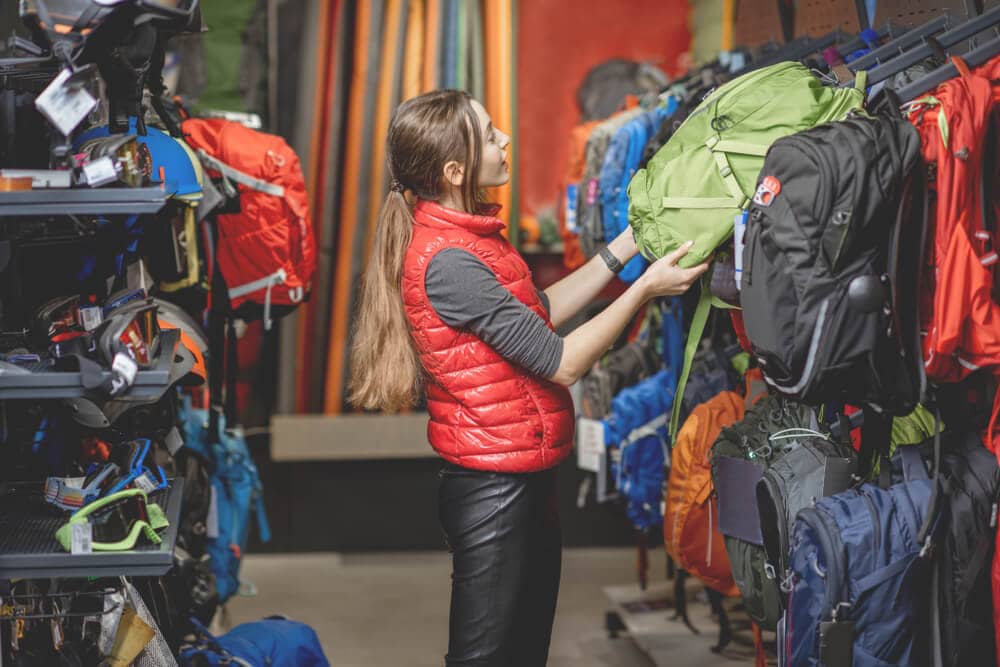
As I mentioned before, it’s better to be over-prepared on your first solo camping trip. With that being said, let’s go through a few essentials that you should be taking.
Camping tent, be nimble for solo camping.
First and foremost, unless you plan on going in a campervan, then you are going to need a tent and sleeping bag, especially if you are sleeping alone.
When looking for a single person tent, there are several categories that you need to decide upon. These include durability, breathability, weight/packability, and weatherproofing.
My current tent is the Big Agnes Copper Spur which retails for $380, a price that is the middle of the pack in terms of pricing.
What I love about this tent is its sturdiness, which makes me feel safe in windy conditions. The tent’s double walls, are made of a patterned double ripstop nylon and is highly effective in keeping the cold out and the warmth in.
I chose the Big Agnes mostly for Its solid build that comes from its patented Featherlite pole. The single-pole allows for a faster setup and reduces a lot of internal and external movement caused from high winds.
While we are on the subject, once you have settled on a tent, you should to practice how to erect it. You can ask for a setup demonstration when you buy the tent, but most local camping stores are happy to show you if you ask politely.
Youtube is another great resource for tent assembly demonstrations. But if all else fails or you forget how to assemble your tent, do save a copy of your tent’s digital handbook on your phone.
Lightweight sleeping bag.
Gone are the days of the one size fits all unisex sleeping bag. Manufacturers now realize that women need specific sleeping bag dimensions also, that our female anatomy requires different temperatures and shapes to achieve this.
Modern female sleeping bags will be rated at a higher temperature. They will also contour to a feminine shape with more full hips and narrower shoulders.
When buying a sleeping bag, make sure it is thermally rated using the EN 13537 system. This European rating, introduced in 2005, considers both male and female body temperatures.
Camping clothes.
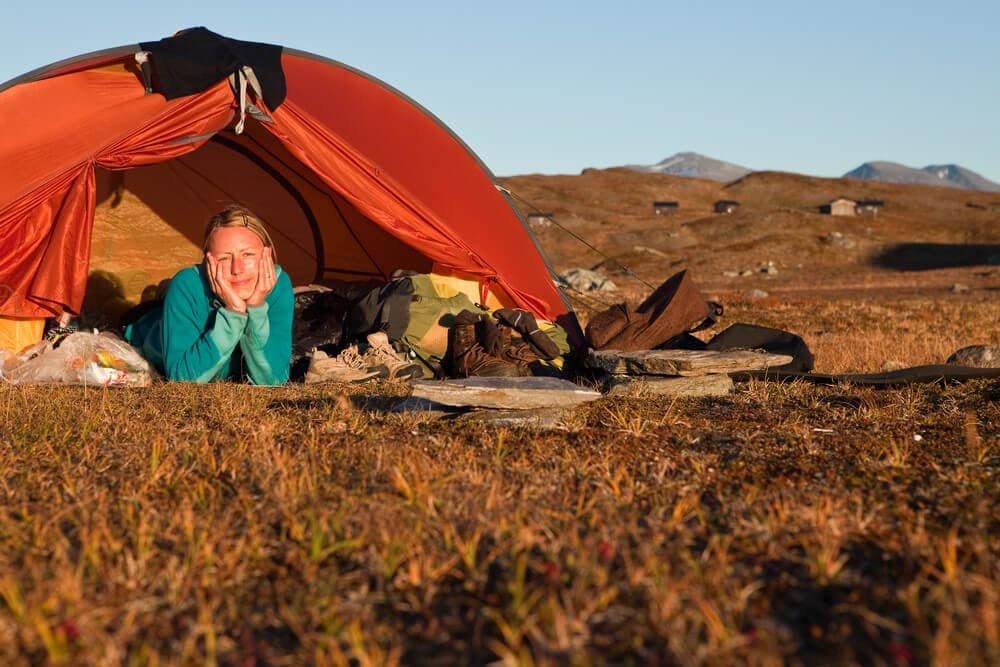
From the planning phase of your solo camping trip, you should have a good idea of what the weather is going to be like. Pack camping clothes that are going to be climate appropriate for the location.
But if heat is expected, don’t be afraid to bring extra camping clothes or even warm camping outfits.
It’s not uncommon to run into a cold front or unexpected weather. Just recently, in Melbourne, it was a 44°C (111.2°F) day. By 6 pm that same day, the temperature had dropped to 18°C (64.4°F). A 26-degree drop in temperature in a four-hour timeframe.
While not a common event, it can happen from time to time in some Southern parts of Australia.
Got a dirty down jacket? See our article on How to Wash a Down Jacket here.
Check your camping equipment.
If you’re a female and new to solo camping, it can be easy to get bogged down in the fine details of planning. So much so that you may forget to test your camping supplies.
Before you leave, check your power, check your water and food, check your tent. Your life depends on your equipment. It’s best to be comfortable and confident with each piece of camping gear you plan on bringing.
A handy tip is to create a status list on the condition of each piece of camping equipment. If it’s in a poor state, make sure to rectify this before you go on your trip, whether it be through repairs or buying a new replacement.
Small-item solo camping gear for women.
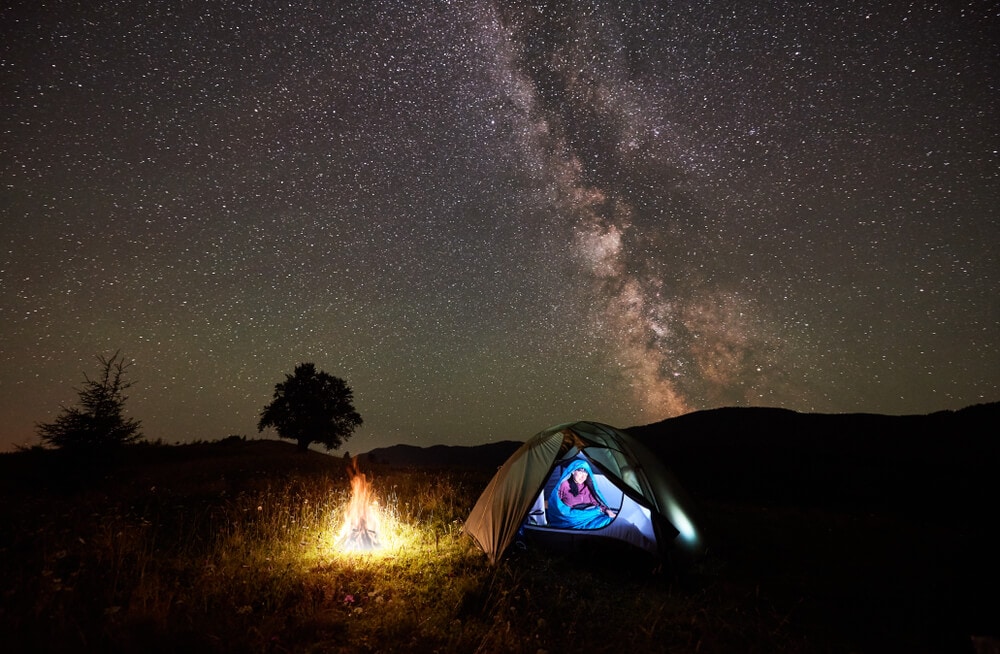
Sure, the whole idea of a solo camping adventure is to unplug and get away from it all. But when you are roughing it on your own, a mobile phone is your lifeline to emergency contacts and family.
For precaution, I make sure to take an extra cell phone, fully charged, and switched off with all emergency contacts saved in it.
Other outdoor camping gear you need to take with you include a camera, stove, pot, food items, knife, headlamp, sweets, energy biscuits, chocolates, tea, and coffee to keep yourself warm and energized.
Just make sure that you choose all your items smartly. Go for those that are lightweight and more practical, especially if you plan on solo backpacking.
See our article on Camping Water Filters here.
Sanitary items include toothpaste, toothbrush, sanitary pads, undergarments, soaps. A great tip is to enclose any liquids and creams in a zip lock bag. Doing so will keep the contents from spoiling the rest of your gear if its container breaks.
Additional camping accessories you can pack can be a lightweight mattress, sources of lighting and power, insect spray, firearms (only if permitted), and anything that makes you feel more comfortable and safer out there in the wilderness.
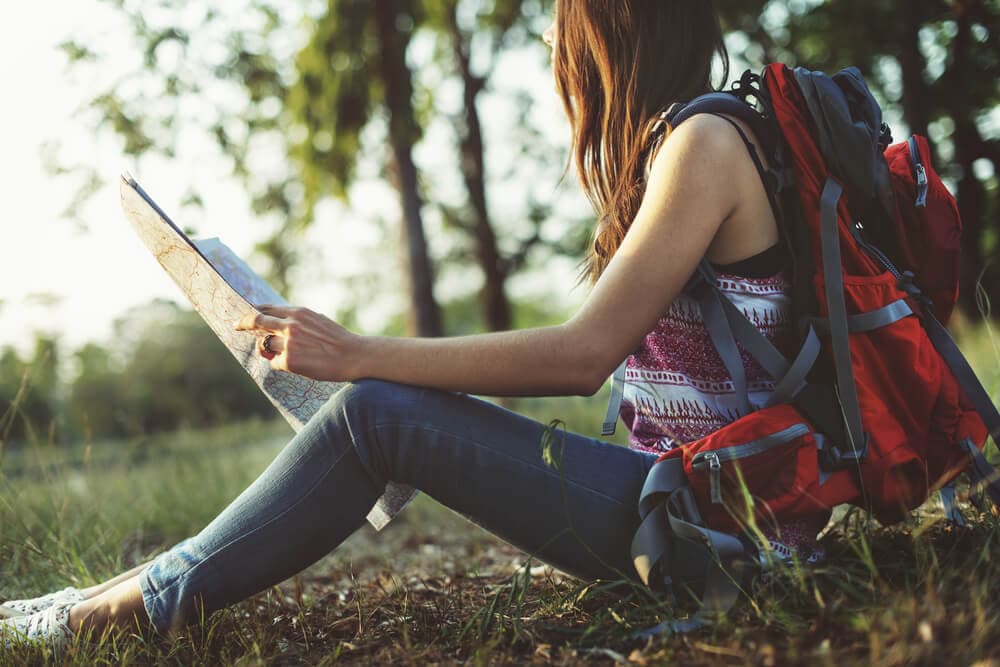
Interacting with the great outdoors and others: A common-sense approach.
When you are out there in the wilderness on your camping adventure, a small careless action could land you in grave danger.
You need to calculate everything you do to stay safe and healthy. Here are some safety tips to make your solo camping manageable and secure:
- Bring a dog or someone else for company and camping safety
- Don’t let locals know you are camping alone
- When you hike, bring plenty of water and a portable water filter
- Bring two phones. Turn off the emergency one to save on battery.
- Don’t make loud noises when camping alone
- Know your abilities and not overestimate them
- Be confident even when you find yourself in tricky scenarios
- Bring a map to mark and plan your camping adventure
- If anything seems risky when solo camping, it may as well be
- Do not experiment on wild fruits and foods if you are not experienced in the art of foraging
- Keep a Flashlight nearby even in the daylight
- Being in a van doesn’t change the fact that you’re still camping. Keep a flashlight close by for night-time bathroom trips or detecting unwelcome wildlife.
- Keep fresh medical supplies, know how to use them appropriately in emergencies.
- Always set up your tent and return from hikes to your basecamp well before sunset
- Look into solar power for use on your camping trips and hikes. I have a recharging backpack that harnesses the power of the sun. It conveniently charges my gadgets while hiking and is possibly the best $80 I have spent.
Camping safety, make sure to protect yourself.
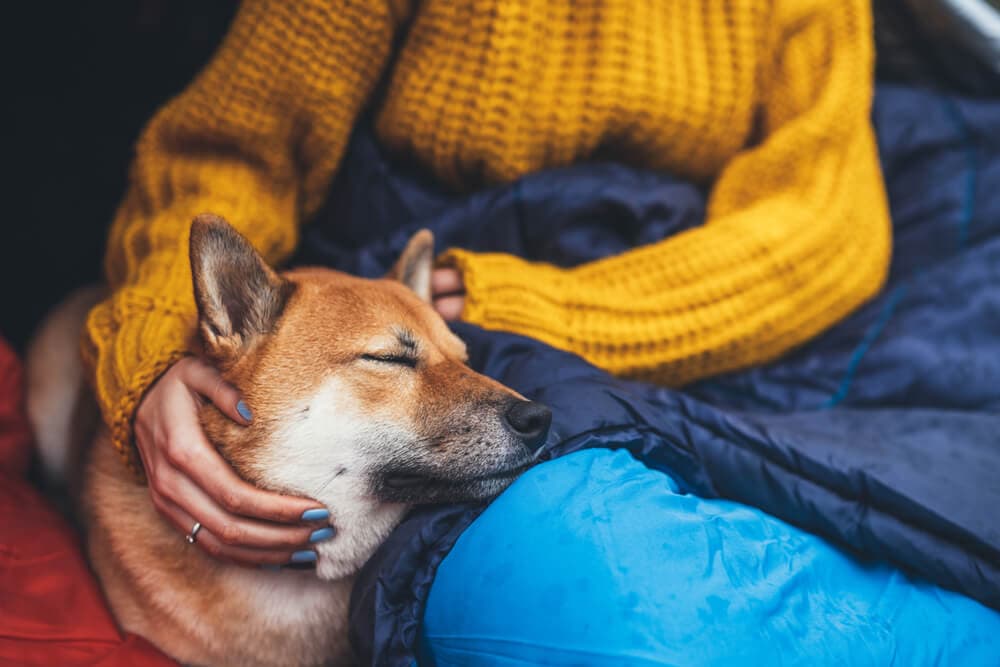
If you prepare thoroughly and follow everything in this guide, there is little room left for ugly surprises. Nevertheless, you need to stay alert and ready to protect yourself when faced with the dangers when you camp solo.
If you own a gun and you are in a country that allows individual possession of firearms, be ready to use it when necessary.
Stay in touch with your family when your camping alone. Let them know if anything threatens your life. Bringing your dog may scare anyone or anything that tries to harm you.
Additionally, you should be ready to use basic fighting and survival skills to get away from danger, but when in doubt, flight is always the best option.
See our article on Solo Backpacking With Dogs here.
Enjoy every bit of the solo camping experience.
Whether you like it or not, on camping trips when camping alone, it will get lonely, that’s the reason why you went, right? Therefore, bring your entertainment.
You can play music from your phone or iPad, read a novel, or write a blog post about your solo camp.
This is also a great time to expand your knowledge of flora and fauna. If you came with a camera, capture everything fascinating to share with your family and friends.
Remember, the main objective of camping by yourself is the quintessential “me-time.” It is important to pamper yourself well so that you are fully recharged after the trip.
Done and dusted, so what now.
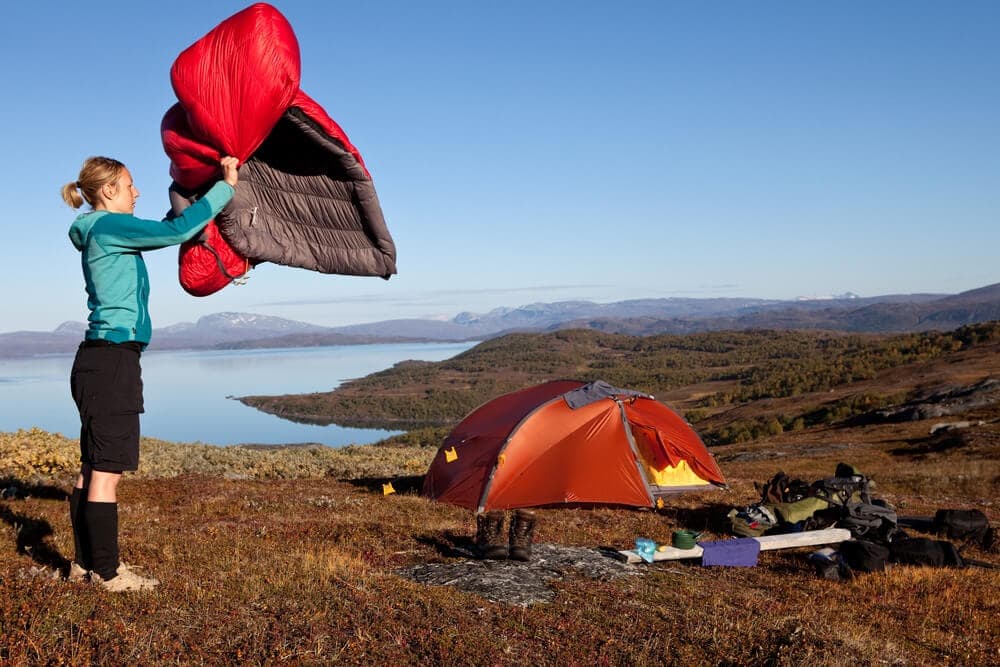
Solo camping and the wilderness can be equally fun and fulfilling, especially if treated with respect. With careful planning, necessary safety measures, and a little precaution, the entire event can indeed be a source to build your self-confidence.
You can then proceed to unwind. When you return, your experience will be a huge inspiration, especially for other budding solo female campers who are anxious about taking such adventurous yet rewarding risks.
If you were successful on your first camp alone, try to go camping again as soon as possible.
There is nothing more exciting than a solo camping trip, except for perhaps planning for your next solo camping trip.

